
Handle the affairs of temporal life with an eye toward eternal life.
Trustworthiness is an important virtue, in the handling of all things.
Those who can be trusted in small things can also be trusted in great things.
Jesus teaches that His laws must always come first.
Putting anything above Him, but especially wealth will put us in conflict with ourselves.
This, we cannot resolve. Can we resist the temptation to try to “have it all”?
Readings: https://bible.usccb.org/bible/readings/091822.cfm
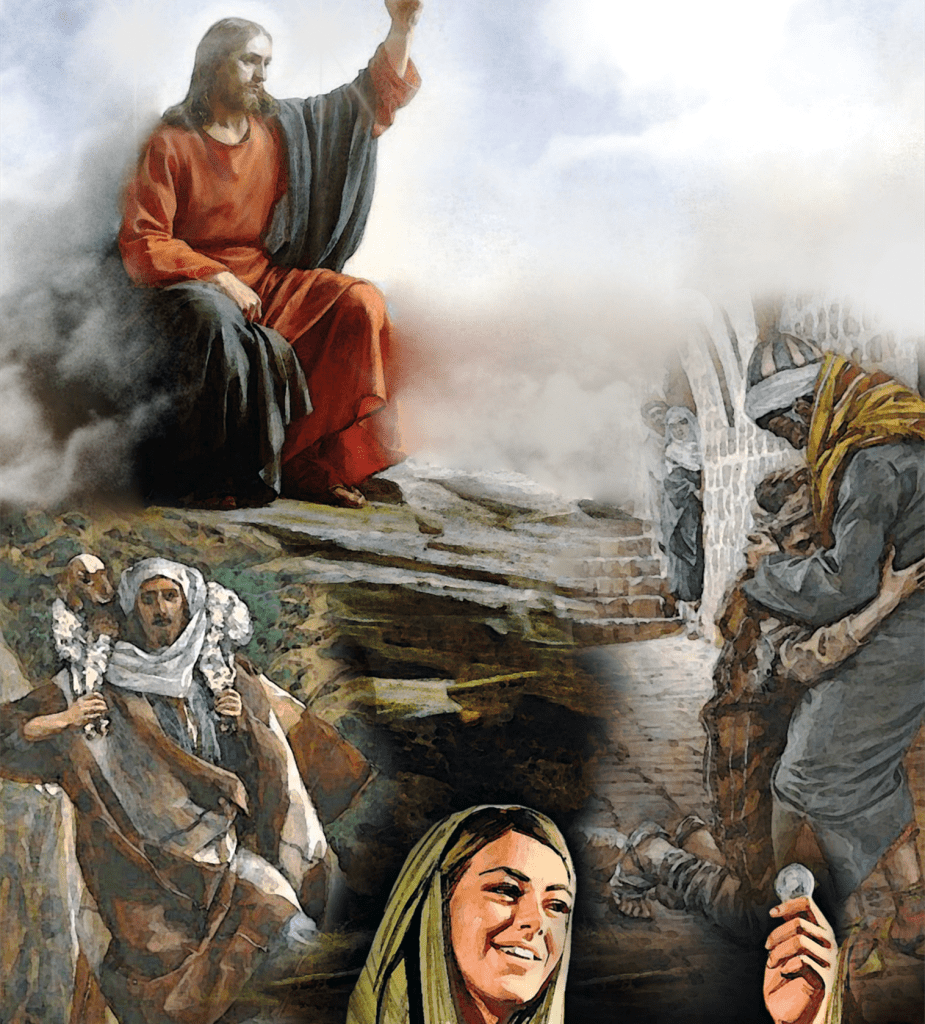
There is always an opportunity in life for forgiveness and redemption.
No matter what one has done, Jesus in the Sacrament of Reconciliation is always available for forgiveness.
There is always hope.
When we turn to Jesus, He will run to greet us.
We are truly important to Him and He will not let us down.
Jesus is, indeed, out looking for us, calling to us.
Can you hear Him?
Readings: Twenty-fourth Sunday in Ordinary Time | USCCB

Jesus gives us strong words to emphasize the high cost of being a disciple.
He uses metaphors to show us that the cost is even greater than loyalty to family and even all of your possessions.
Nothing can be allowed to distract you from the essential reality of Jesus calling you to the conversion of heart and discipleship.
Keep what you are doing in perspective. Love and care for your family and love God above all else.
We are encouraged to weigh carefully the dangers of making the wrong choice about who or what we really want to follow.
How much are we willing to sacrifice to be his disciples?
Readings: https://bible.usccb.org/bible/readings/090422.cfm
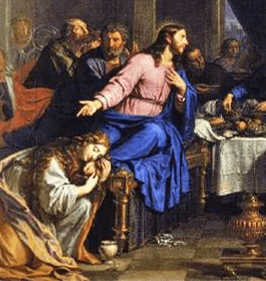
Jesus teaches us about keeping our self-image properly focused.
Declaring ourselves at a level of importance beyond our real level can lead to problems.
Assuming that we are “better than” someone else may lead to a correction of place by others.
It is especially important that we walk humbly before our God for it is He who positions us in His Kingdom. Treat others as He has willed.
Be especially attentive to those who have less and can only do less. Do we have our priorities straight?
Readings: https://bible.usccb.org/bible/readings/082822.cfm

Jesus warns His followers not to think they can do the minimum and enter heaven.
They need to strive to discern their God-given mission, then they must pursue it.
Reception of the Eucharist at Mass may be a passive following, if not accompanied by an aggressive attempt to live the gospel and build His kingdom.
Strength and persistence are necessary to pass through the narrow gate.
Are you committed to taking the difficult path that is required, passing the comfortable, secure, familiar one?
Readings: https://bible.usccb.org/bible/readings/082122.cfm
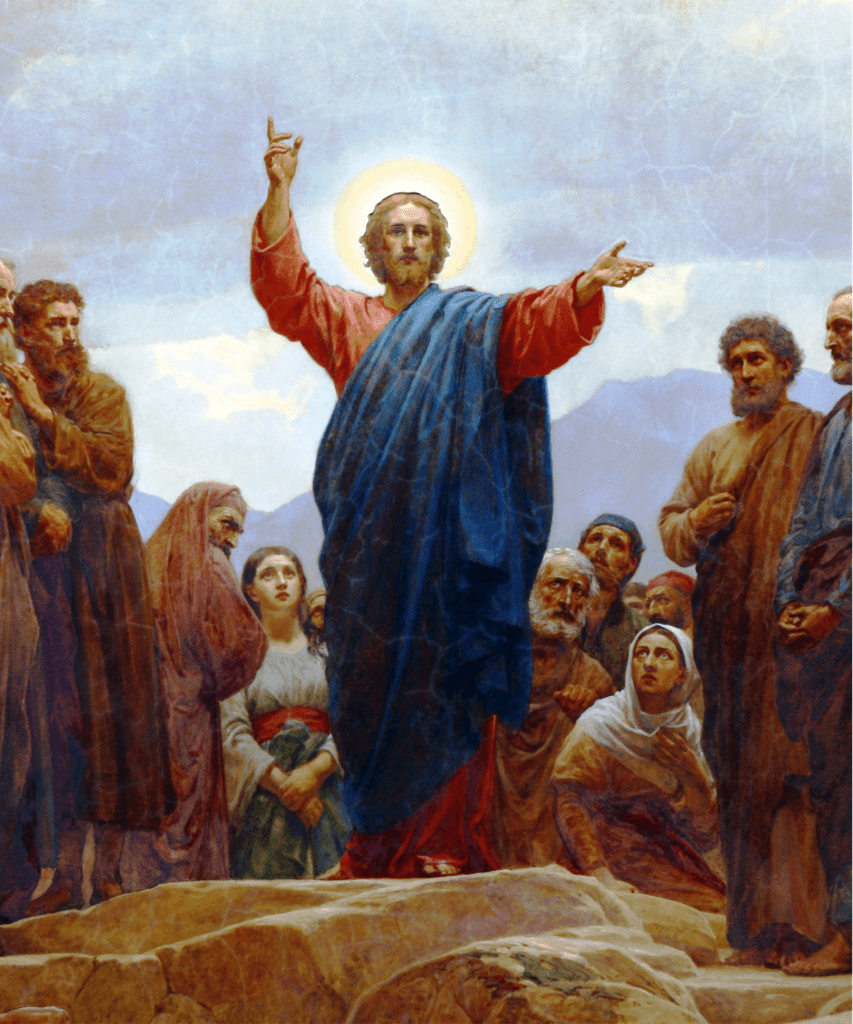
Jesus speaks with passion and intensity about His mission.
His mission was not to smooth over or tolerate compromise between God’s will and the preference of individuals.
Nor was it to accept indifference or a lukewarm attitude in His followers.
His mission was to challenge complacency and creature comforts.
People must make a choice between what they want and what God wants.
Jesus offered His life for His mission in the baptism of fire that was His crucifixion.
Are you willing to make the sacrifices to ignite a passion for your mission?
Readings: Twentieth Sunday in Ordinary Time | USCCB
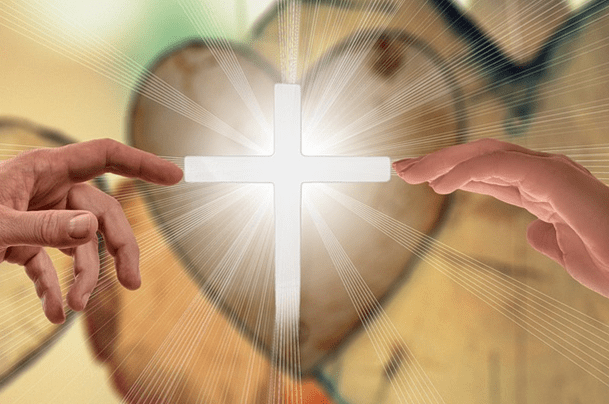
Jesus encourages us to follow Him in faith and our relationship with others.
It is so easy to get caught up in things that keep us from our obligations to our God and to each other.
His promises must always be kept before us, so as to never forget that our salvation is at hand.
We prepare for His coming by always being good stewards of all He has given us, in wealth and talent.
What are we responsible for? Are we paying attention?
Readings: https://bible.usccb.org/bible/readings/080722.cfm

Jesus warns us not to believe that all that we have is necessarily what we need.
If greed is the motive to possess we may be disappointed.
We may be called at any time and wealth should not be our main achievement.
Our wealth means nothing to God. Fidelity to Him is all that counts.
Is anything holding you back from God?
Readings: https://bible.usccb.org/bible/readings/073122.cfm
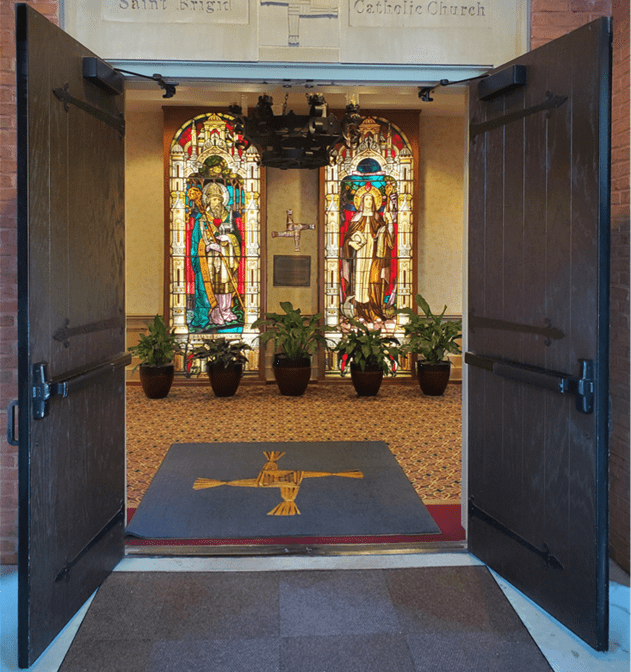
You will find the mercy of God.
Persistence in prayer is important for you to organize your life and your behavior.
God hears our pleas for help and support.
He will not deny us what is best for us.
Have you prayed the “Our Father” today?
Readings: https://bible.usccb.org/bible/readings/072422.cfm

And Mary has chosen the better part … to listen to the Lord speak.
Martha is at work, too, but in haste and angst.
The life of faith requires balance. A balance between contemplation and action.
Our readings this week speak of the need for hospitality and yet the need to also listen to the visitors in our lives. Indeed, not to miss an encounter with God in our lives.
Do you sometimes miss an encounter with God because you are doing or thinking something else?
Readings: https://bible.usccb.org/bible/readings/071722.cfm
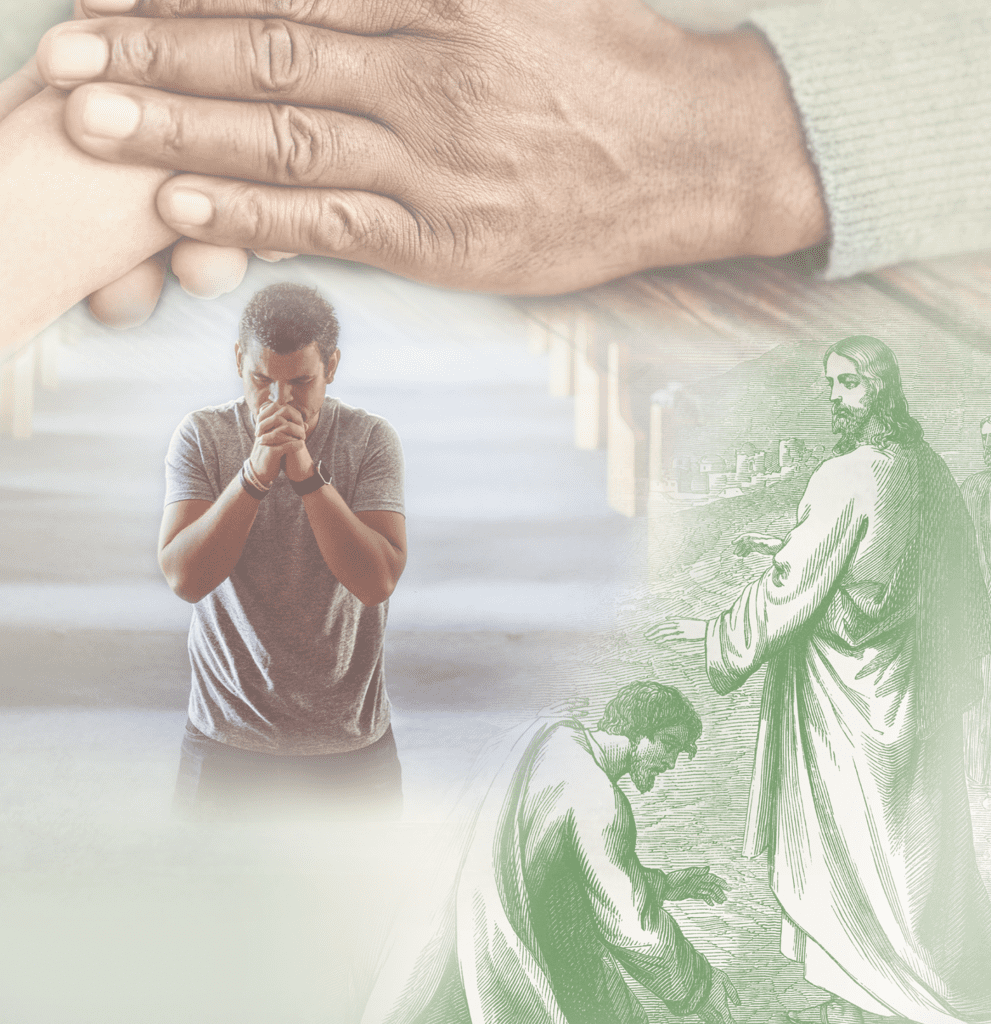
Jesus teaches us about the primacy of mercy.
The written law is not sufficient if it does not touch men’s hearts.
Our neighbor is anyone we encounter who is in need.
Sometimes mercy requires that we go beyond our normal path.
Can you think of who needs mercy among those around you?
Readings: https://bible.usccb.org/bible/readings/071022.cfm
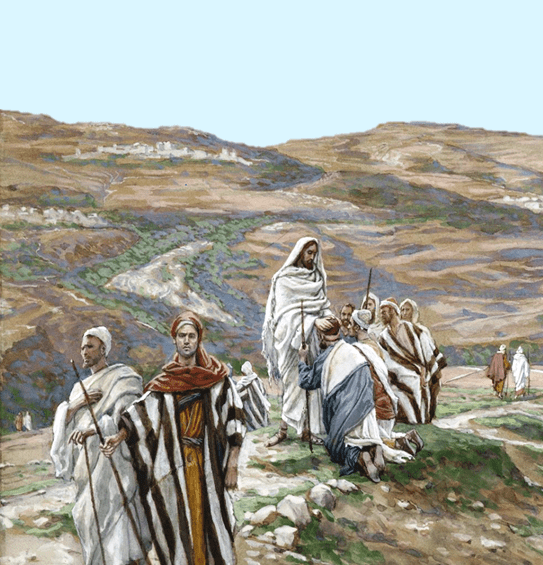
Jesus sends the 72 disciples to spread His word.
He sends them to heal the sick and proclaim the coming of the Kingdom of God.
We, too, are sent forward to also proclaim the Kingdom and to do what we can to heal a sick world.
There is much opposition to this mission, but we are given His protection to go forward without fear.
Can we trust that He is with us?
Readings: https://bible.usccb.org/bible/readings/070322.cfm

Jesus emphasizes the importance of proclaiming the Kingdom of God.
Disciples must put this proclamation as the first thing in their lives because of its importance.
Nothing else in life should come before the mission of a disciple.
Jesus understands the importance of other aspects of our lives as part of our mission. But He also tells us not to let those things overwhelm the core of our mission.
Do you know the total mission you have, and how to fulfill it?
Readings: https://bible.usccb.org/bible/readings/062622.cfm
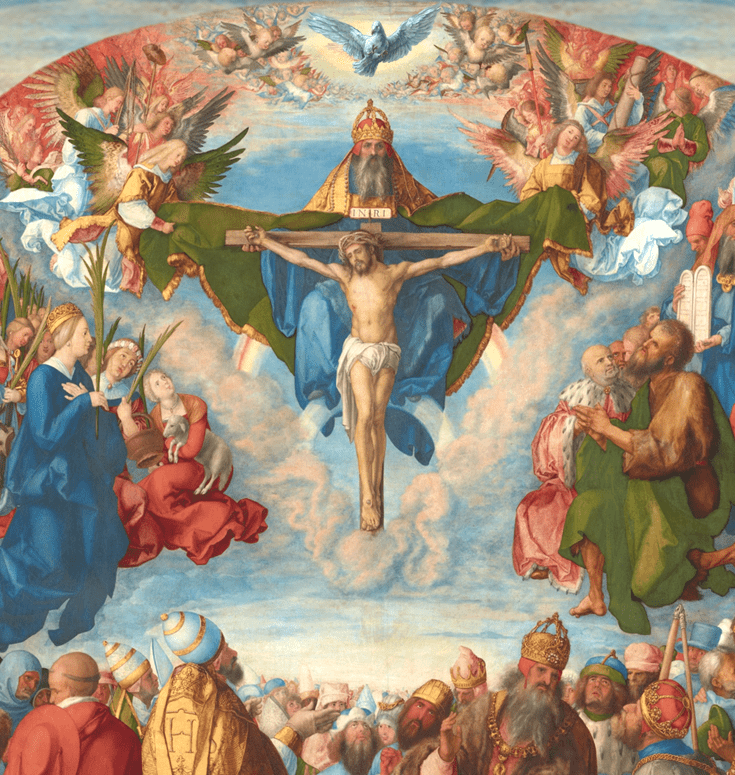
The mystery and glory of God is shared with us, His creation, through the Holy Spirit.
Jesus’ life, death, and teaching has given us everything we need.
The Holy Spirit will help us understand what this really means to us.
It is an unimaginably beautiful gift and it is much to absorb.
If we open ourselves to the Spirit He will come to us and help us.
Are you ready?
Readings: https://bible.usccb.org/bible/readings/061222.cfm

….. But Do Not Perceive the Wooden Beam in Your Own?
Jesus reaffirms that what is inside our hearts will govern our actions.
Hypocrisy occurs when we ignore our faults and yet complain about others.
He stresses the need to examine ourselves, and change as necessary so that we can bear good fruit – that is right action.
Jesus is our teacher and we can only find the right way if we follow Him. Our thoughts and actions will not be sufficient by themselves.
Will we take a good look at ourselves and our direction, to ensure we will not fall into a pit?
Readings: https://bible.usccb.org/bible/readings/022722.cfm

Jesus gives us the way to a life of discipleship.
He asks us to develop an attitude to love, to stop judging, and stop expecting rewards for our good actions.
The Christian way to change the world does not always make sense to us, but it is the way of God.
Jesus promises a reward in heaven but also a way to live in peace, knowing that you are trying to do what is right.
Can we change our approach to situations and use God’s way rather than our way?
Readings: https://bible.usccb.org/bible/readings/022022.cfm

Jesus was the first to bring us this most common and most popular rule of life.
Similarly, we are not to condemn, judge, or be reluctant to forgive.
Jesus expects us to learn from him and live our lives accordingly.
His mission was to further the building of the kingdom and our part is to help human beings live in a peaceful and reasonable way.
Our actions can either help in the building of the kingdom or do things to tear it down.
How can we just make things a little bit better?
Can we apply what Jesus said to a part of our life today?
Readings: https://bible.usccb.org/bible/readings/021322.cfm

How do we know when Jesus is calling us?
Like Simon, we may be asked to defer our own judgment, and respond to God’s instruction.
And as Peter was surprised by the result, we may be also.
True conversion is reflected in Peter’s response: “Depart from me Lord, for I am a sinful man”
Recognition and acceptance of Jesus’ power and majesty, bring repentance and humility.
When Jesus calls, will we surrender to him, putting aside our plans for His?
Readings: https://bible.usccb.org/bible/readings/020622.cfm
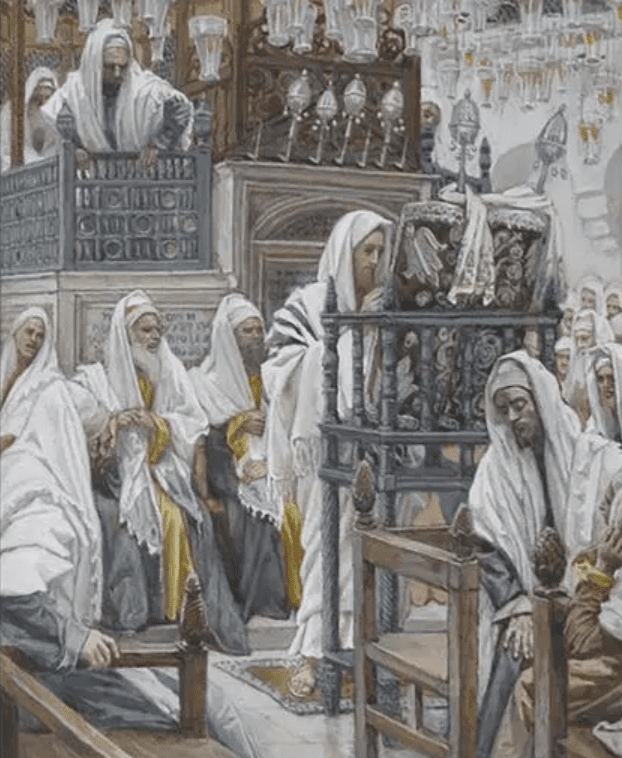
Jesus states, before the Jewish religious leaders, that He has been anointed by God to serve and to save his people.
He reads those words from Isaiah – a prophecy- then proclaims it fulfilled by his reading.
Can you imagine the impact this would have on His audience?
God speaks to us in unexpected ways sometimes – ways that may shock us.
Can we be humble and listen?
Readings: https://bible.usccb.org/bible/readings/012322.cfm
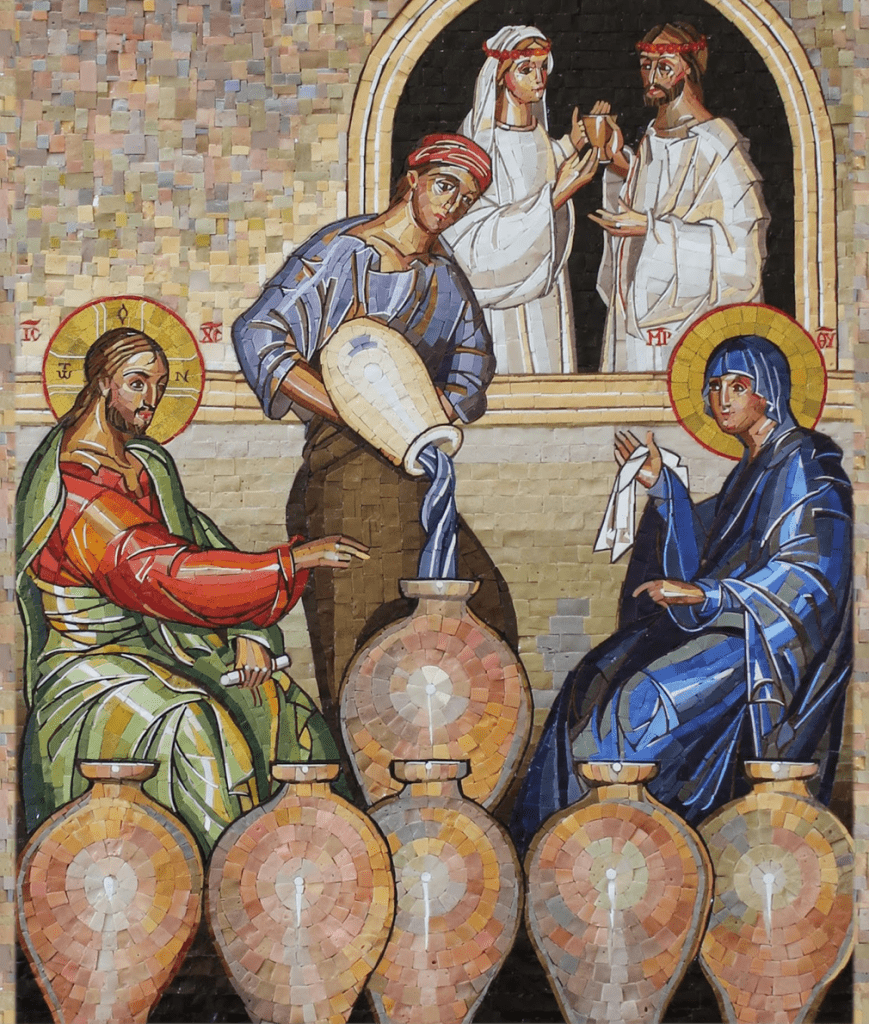
Jesus responds to the needs of the couple at the wedding feast of Cana.
He uses the opportunity to reveal His power over great and even everyday things, hence converting the water to wine at the wedding.
The guests and the wedding couple may not have initially known what happened but Jesus was at work in their lives.
The disciples noticed and believed.
God is never distant from us no matter what we are doing.
Every day of life is a miracle in and of itself. We need to recognize this constant action of God in so many ways.
Can we reflect on this for our lives?
Readings: https://bible.usccb.org/bible/readings/011622.cfm
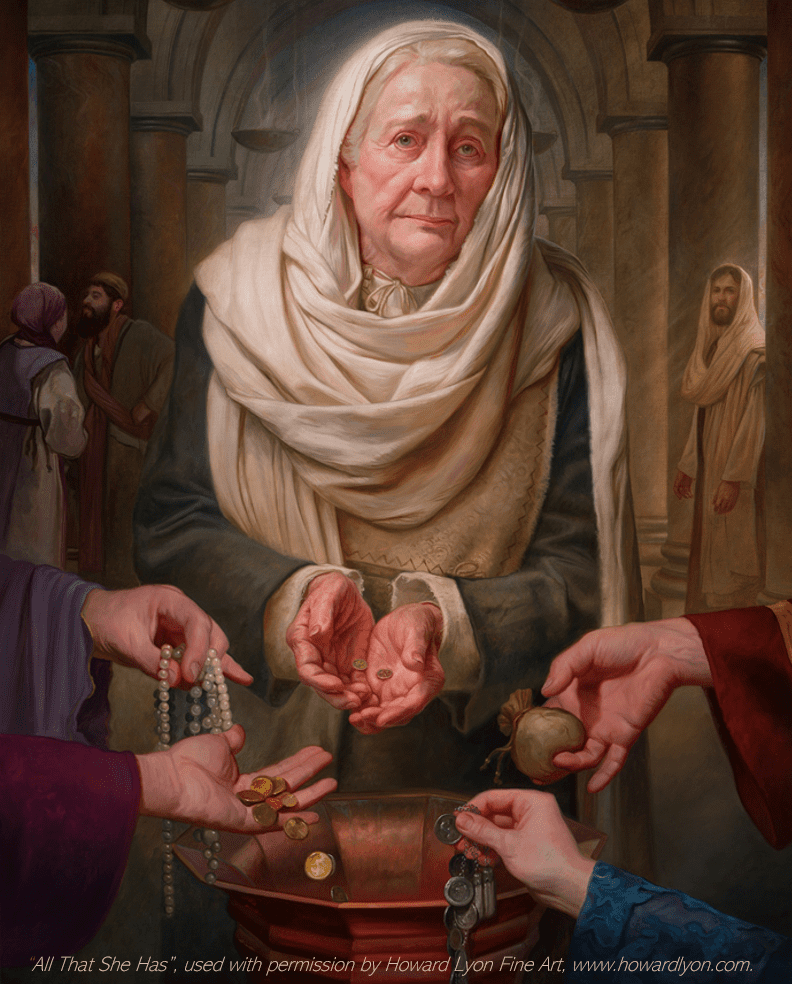
The rich can give much.
The poor widow gave all she had.
Giving from one’s surplus is good and giving from one’s essentials is even better.
The intention of the heart in giving should match one’s ability to give.
It’s really not about the value of the gift as it is about what one is trying to do.
Do we have the generosity to return to God a proper portion of what we have been given?
“All That She Has”, used with permission, by Howard Lyon Fine Art. Please visit www.howardlyon.com.
Readings: https://bible.usccb.org/bible/readings/110721.cfm
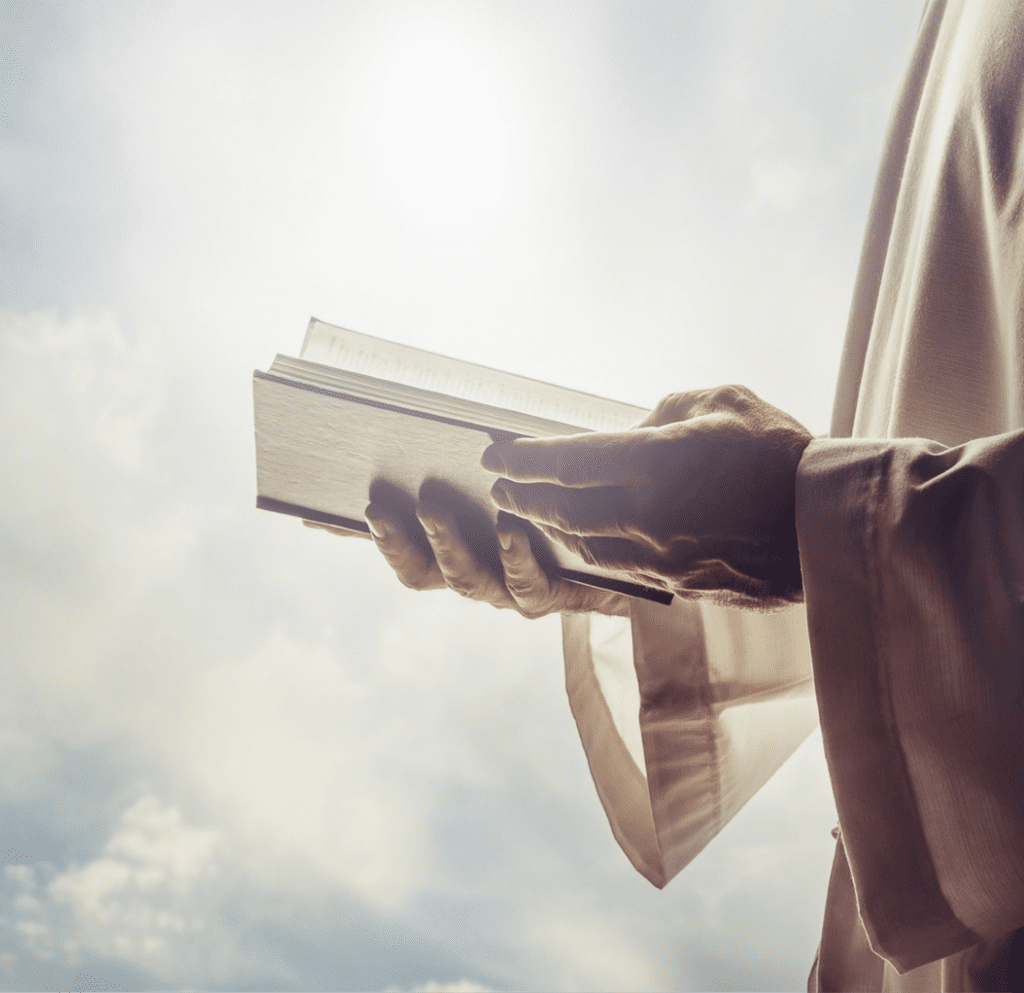
With these words, Jesus combines the supreme mandate of the Old Testament and the essence of His teaching.
Jesus shows us that the intentions of our hearts are the first and foremost thing that should guide us in all things.
If the intention within us is focused on the love of God and neighbor, we too can come closer to the Kingdom of God.
We need to love and act accordingly.
Are we correctly oriented and ready to act?
Readings: https://bible.usccb.org/bible/readings/103121.cfm
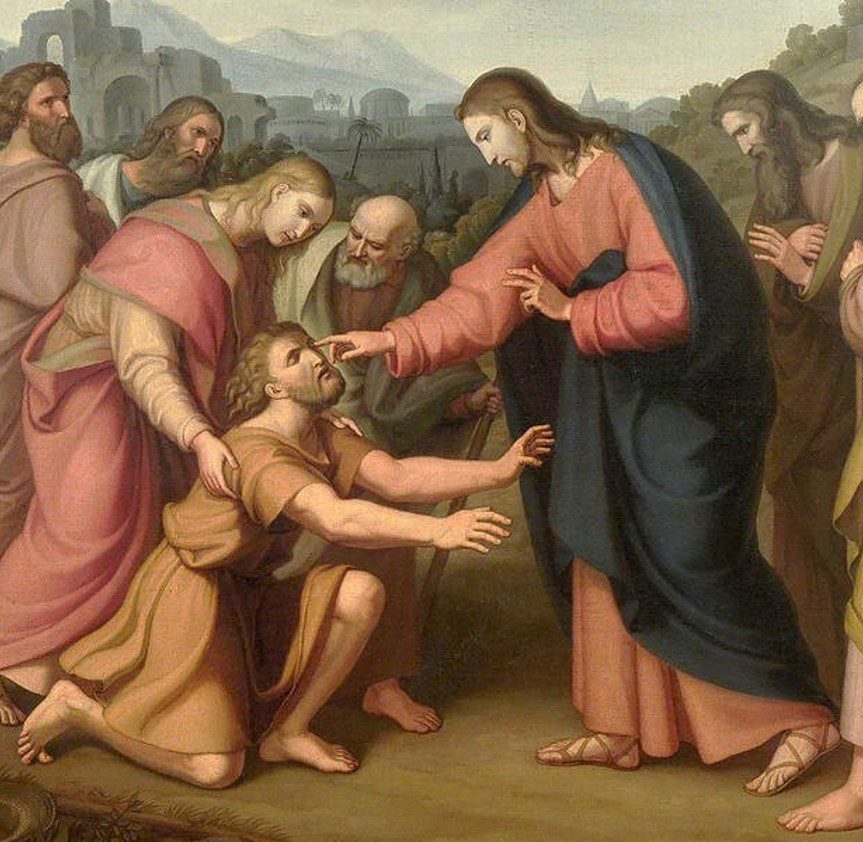
Jesus healed the sight of Bartimaeus, a blind man.
He can also heal us of our inability to see Him clearly.
Jesus’ miracles attracted many followers because people saw the power of God in Him.
Bartimaeus was overwhelmed by his gift of sight yet many didn’t believe the fact that Jesus healed him. They had no faith.
Jesus will perform miracles in our lives. We can be healed of all sorts of spiritual, emotional, and physical ailments.
Will you let your faith in Him save you too?
Readings: https://bible.usccb.org/bible/readings/102421.cfm

Jesus teaches challenging requirements for those who follow him.
Sometimes the requirements can seem so difficult, that no individual can meet them.
But Salvation is the province of God and not something to be earned by human beings.
Jesus promises that God’s faithfulness will reward those who have given up much for the advancement of the kingdom.
Is it not time to review how we are trying to follow what Jesus teaches?
Readings: https://bible.usccb.org/bible/readings/101121.cfm

Jesus tells us to take His teachings for what they really are without qualifying them. This straightforward simple acceptance is as a child might do.
He was speaking directly about the issue of divorce, which is so common today.
In His time, divorce was devastating to a wife, particularly if she had no other source of social or financial sustenance.
It can also be devastating now for couples who go through a divorce.
Let us pray for couples experiencing difficulties in their relationship that they may find a resolution.
Let us pray for those who experience divorce, that God will heal them and guide them to a peaceful future.
Art used with permission – Rev. Fr. Ronald Patrick Raab, CSC- Visit his blog at www.ronaldraab.com
Readings: https://bible.usccb.org/bible/readings/100321.cfm
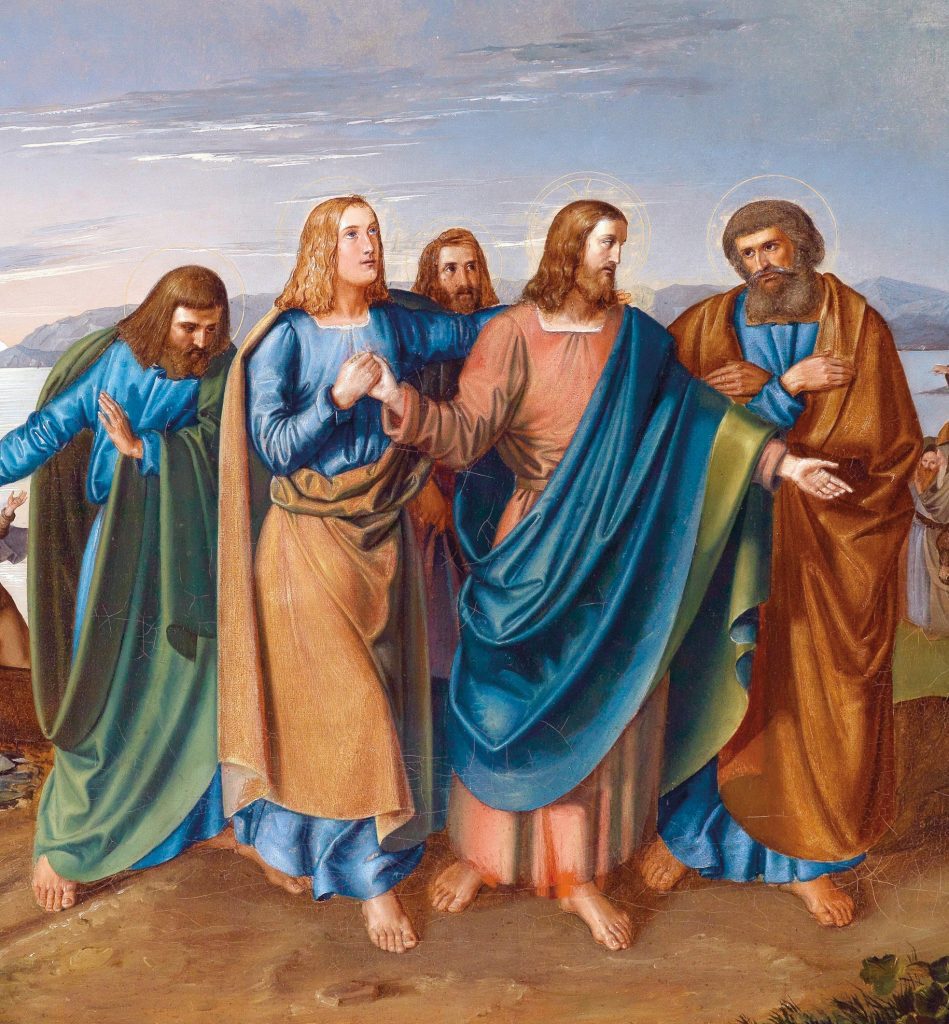
Be tolerant of others who do good works and orient themselves to God’s plan.
Pay attention to what you are doing. Do not lead others astray.
If something about you causes you to sin, fix it! Whatever it is, it is not worth your salvation.
Jesus values us as members of His body of believers and depends upon us to help advance the kingdom.
Do you understand this? Do you believe this?
Will you act upon it?
Readings: https://bible.usccb.org/bible/readings/092621.cfm
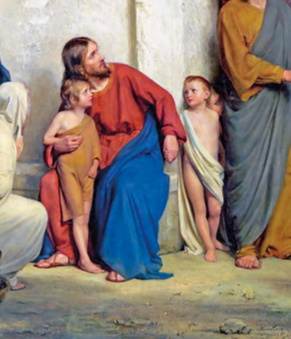
Jesus reminds us that success is measured by how we follow Him, not by how others think of us or how easy our lives are.
The disciples were looking out for their earthly place of importance, and in heaven as well.
Jesus, using a child as an illustration of powerlessness, tells us that serving the least among us is a start to our success.
He reminded the disciples that He would make the ultimate sacrifice, His death, for the benefit of mankind.
How do we measure the success of our lives?
Readings: https://bible.usccb.org/bible/readings/091921.cfm

Jesus questions His disciples about who do they say that He is.
Peter affirms that He is “the Christ”, the Savior.
But Jesus demands more than an affirmation of who He is, both from the disciples and from us.
“Whoever wishes to come after Me must deny himself, take up His cross, and follow Me.
If we recognize Jesus as our Savior, must we not also do as he asks to follow Him?
Readings: https://bible.usccb.org/bible/readings/091221.cfm
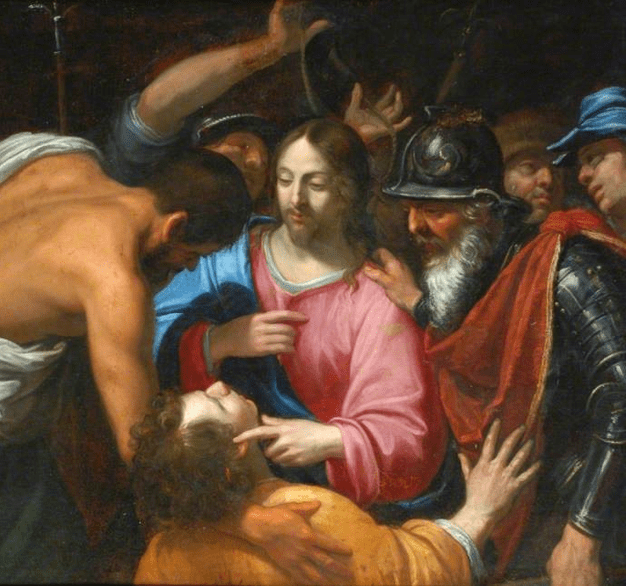
Jesus’ Ministry was always about teaching and healing.
His compassion for the poor and sick was evident everywhere he went.
It is easy to derive another message from this healing.
He cures real deafness and special deafness as well.
He cures real speech impediments and failure of our speaking the truth and his message.
Can you hear and speak?
Readings: https://bible.usccb.org/bible/readings/090521.cfm
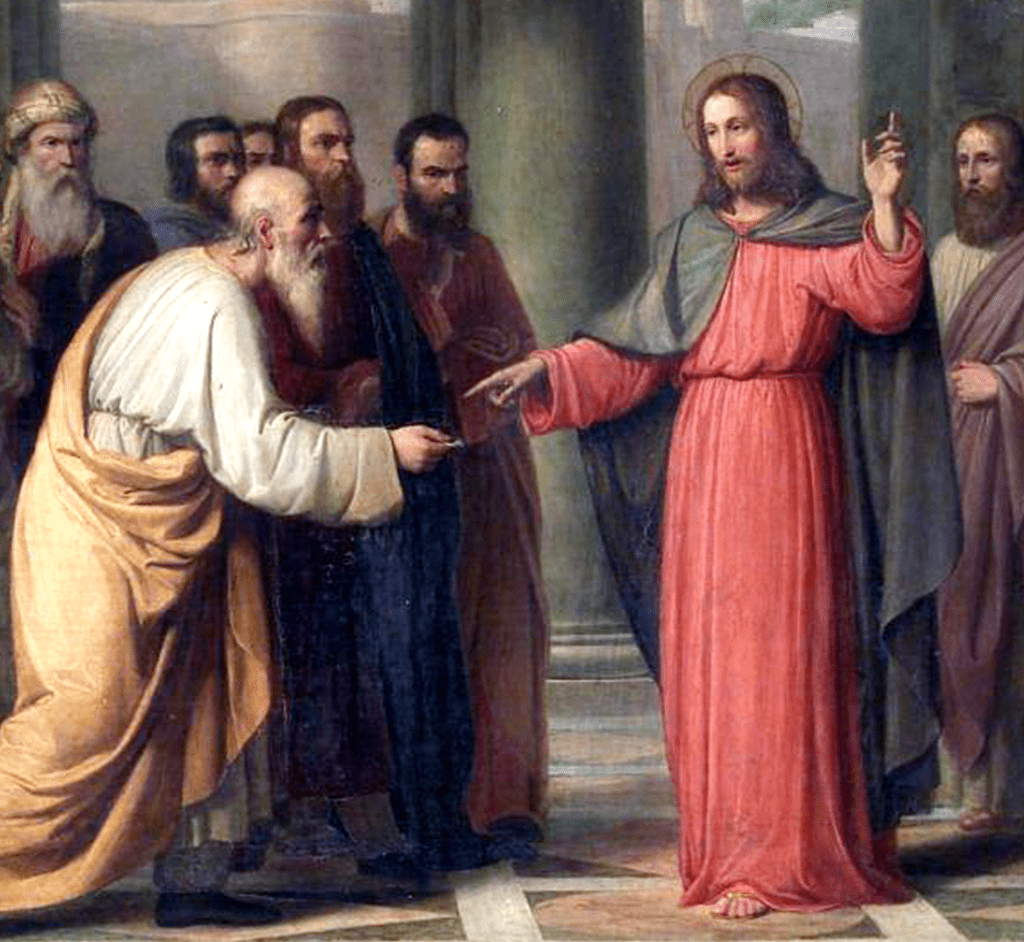
Jesus tells us that insidious evil can come from within.
The heart is considered the source of human thought and emotion. The heart is the center of our being.
The basic message is intention. One can say “I didn’t do it”, but did you think it?
External religious practices and social niceties are not substitutes for a clean heart.
What steps should we take to purify our hearts?































